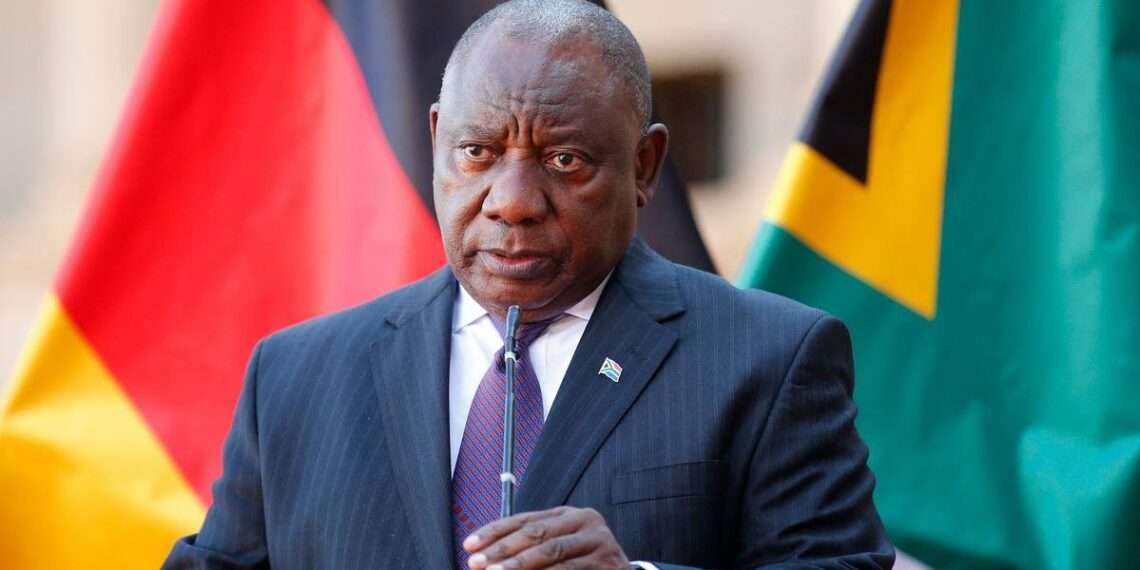President Cyril Ramaphosa has been absolved of involvement in the Phala Phala scandal by the office of the Public Protector, but the report revealed that, Major General Wally Rhoode, the commander of the Presidential Protection Service, lacked the proper authorization to look into the farm burglary.

The much-awaited inquiry into Ramaphosa’s purported misconduct over the Limpopo farm, owned by a businessman, of which the President is the sole director, was released at a news conference conducted by Acting Public Protector Kholeka Gcaleka.
The incident concerns a break-in on the farm, on the evening of February 9, 2020, during which at least two intruders stole a large amount of money, hidden under a couch cushion.
Ramaphosa asserted that, on Christmas Day in 2019, Sudanese businessman Hazim Mustafa, gave $580,000 in cash to his ex-farm manager, Sylvester Ndlovu for the exchange of buffaloes. Though the buffaloes had been present in the farm for over three years later, the President claimed that, the money was given in exchange for a herd of them.

According to Kholeka Gcaleka, her office couldn’t look into the tax matters because, the South African Revenue Service (SARS) and the South African Reserve Bank (SARB) have been tasked for handling tax-related issues and foreign exchange control laws respectively.
Additionally, the Public Protector’s office failed to look into whether Ramaphosa accurately reported the break-in to police in accordance with the Prevention and Combating of Corrupt Activities Act (PRECCA).
Report On Ramaphosa
According to the Acting Public Protector, there were no proof that, Ramaphosa was responsible for managing the farm on a daily basis, or he was paid by it.
“No evidence could be found indicating that the president either works at Phala Phala farm or receives remuneration from Phala Phala farm.”
Kholeka Gcaleka, Acting Public Protector Director.

However, she pointed out that, information gathered from the examination of the President’s register of financial interests showed that, he still held financial stakes in Ntaba Nyoni, the holding company for the Phala Phala farm.
Gcaleka averred that, there were no proof that implicated Ramaphosa of being actively involved in the “management of the affairs of the closed corporation than he appears to let on in his general submissions.”
“The evidence revealed that, the President held discussions with farm managers, notably, regarding the disposal of certain animals due to them being substandard. There are, of course, other facts which point away from the President being involved in paid work. For one thing, he neither draws a salary from the Ntaba Nyoni CC nor receives any distributions. He evidently is not often physically present at the farm.”
Kholeka Gcaleka’s Findings On President Ramaphosa.

Additionally, she determined that, there was no evidence to support claims that Ramaphosa’s presidential responsibilities, and those of Phala Phala were in conflict.
“Considering the evidence in its entirety and the application of the law, there is no basis to exalt such deliberations to the extent where it can be held that there existed a real or potential conflict of interests regarding his duty as the Head of Cabinet and his interests in game and cattle farming at Phala Phala farm in violation of the Code. No evidence could be found to underpin a finding or a conclusion that the president’s comments or utterances in this regard were a continuous act to be considered or construed as active involvement in the business or paid work.”
Kholeka Gcaleka’s Findings On President Ramaphosa.
Regarding whether Ramaphosa overstepped his authority by ordering a probe into the burglary at his farm, Gcaleka stated that, there was no proof that he had given Wally Rhoode any instructions or directed him to conduct an inquiry.




















